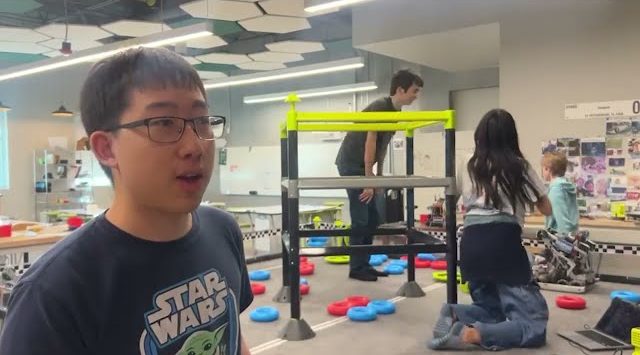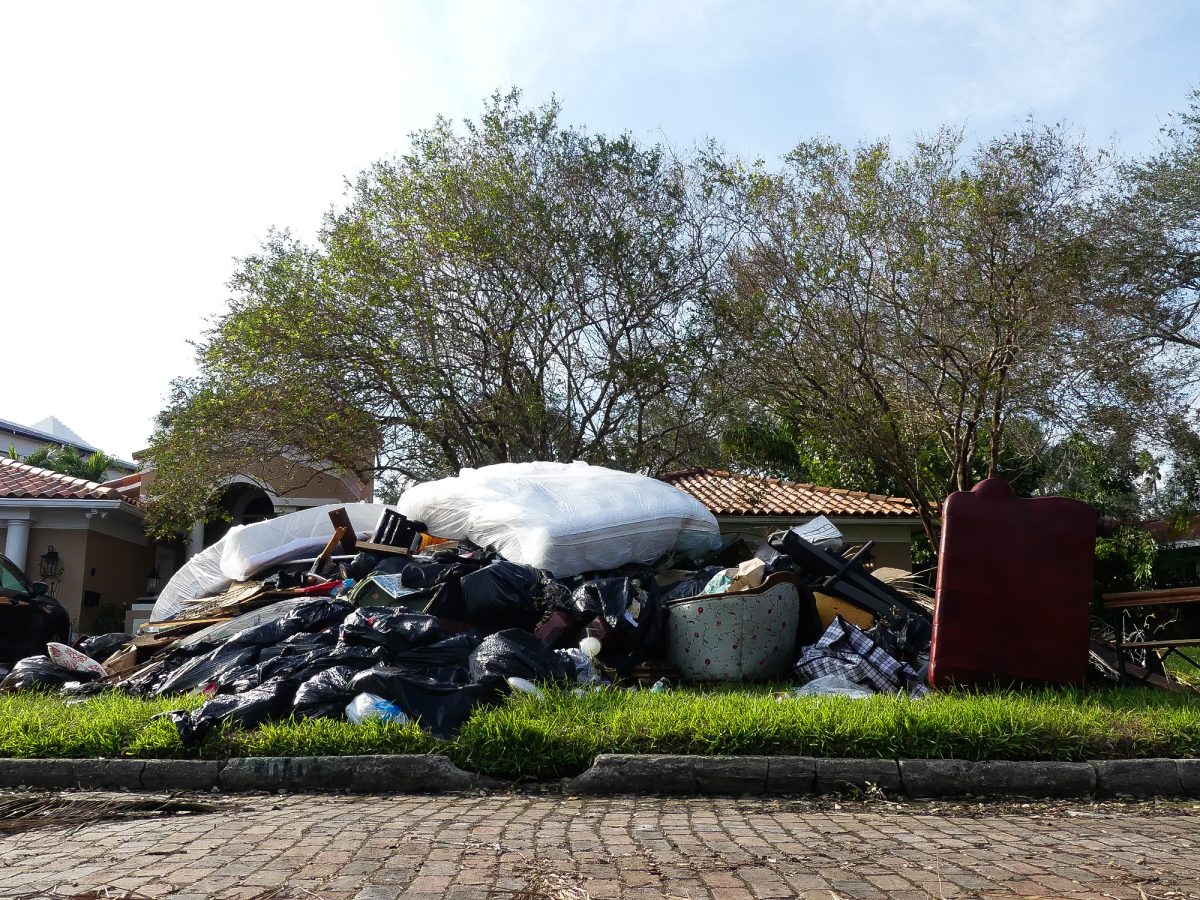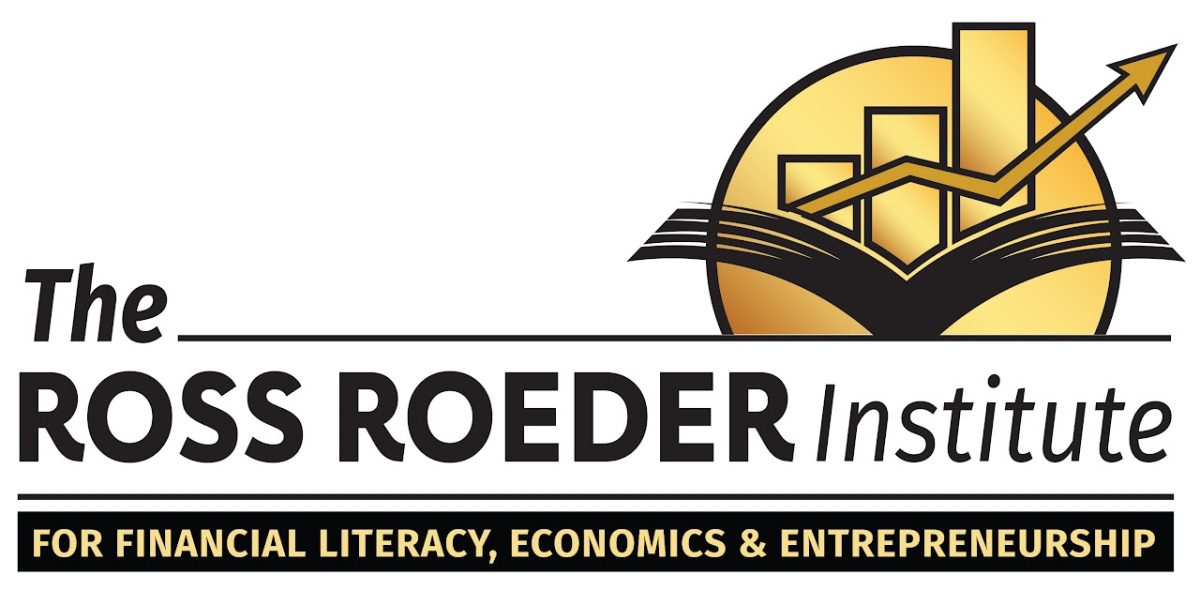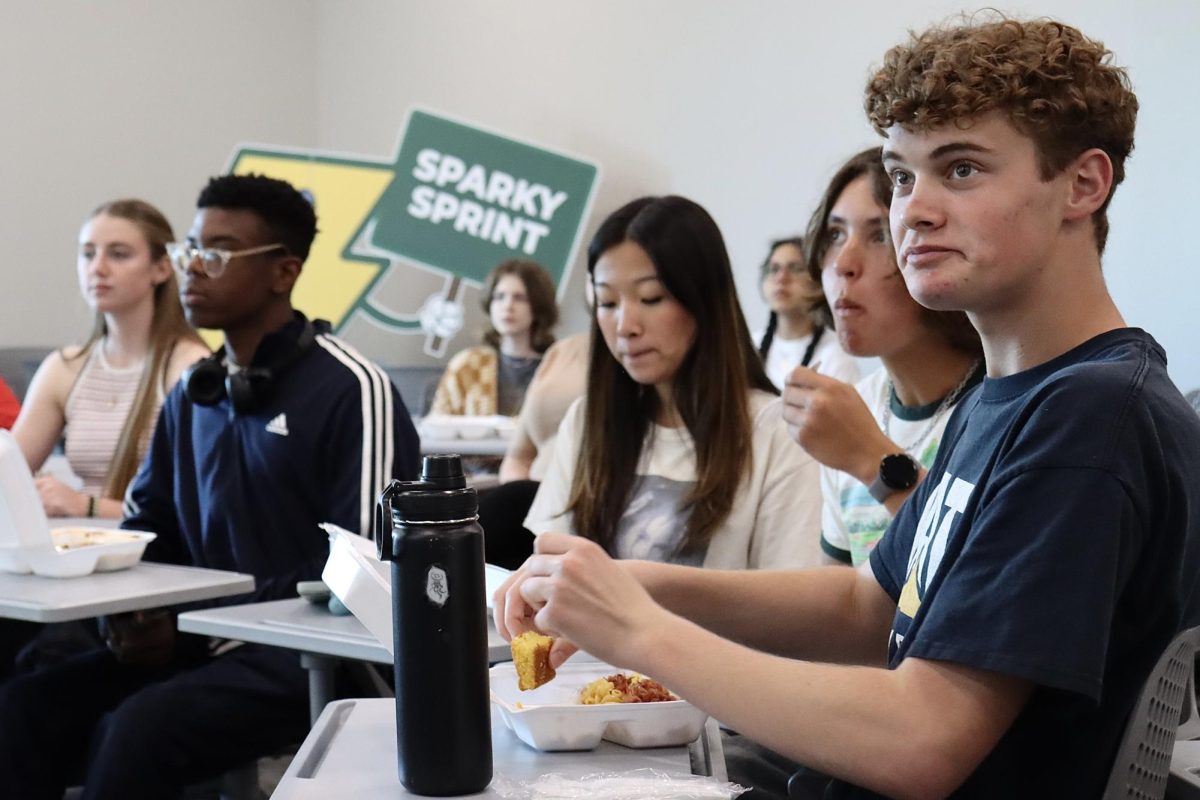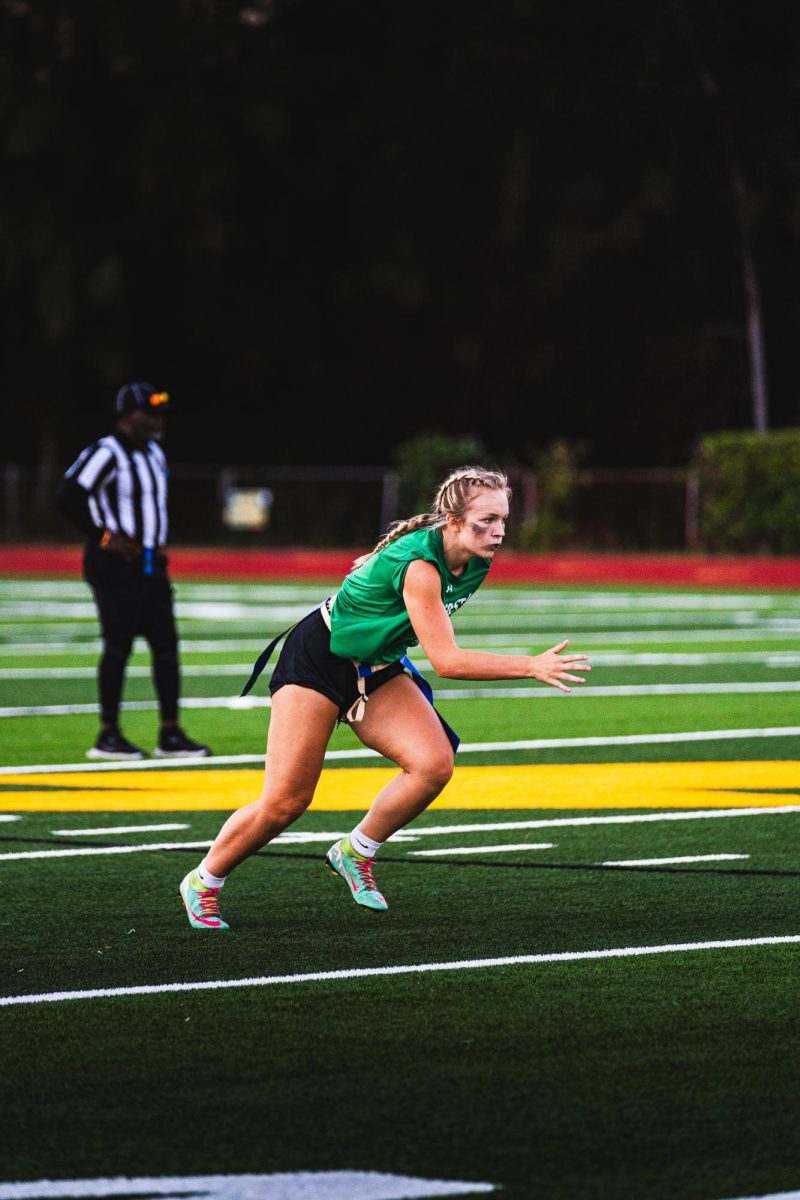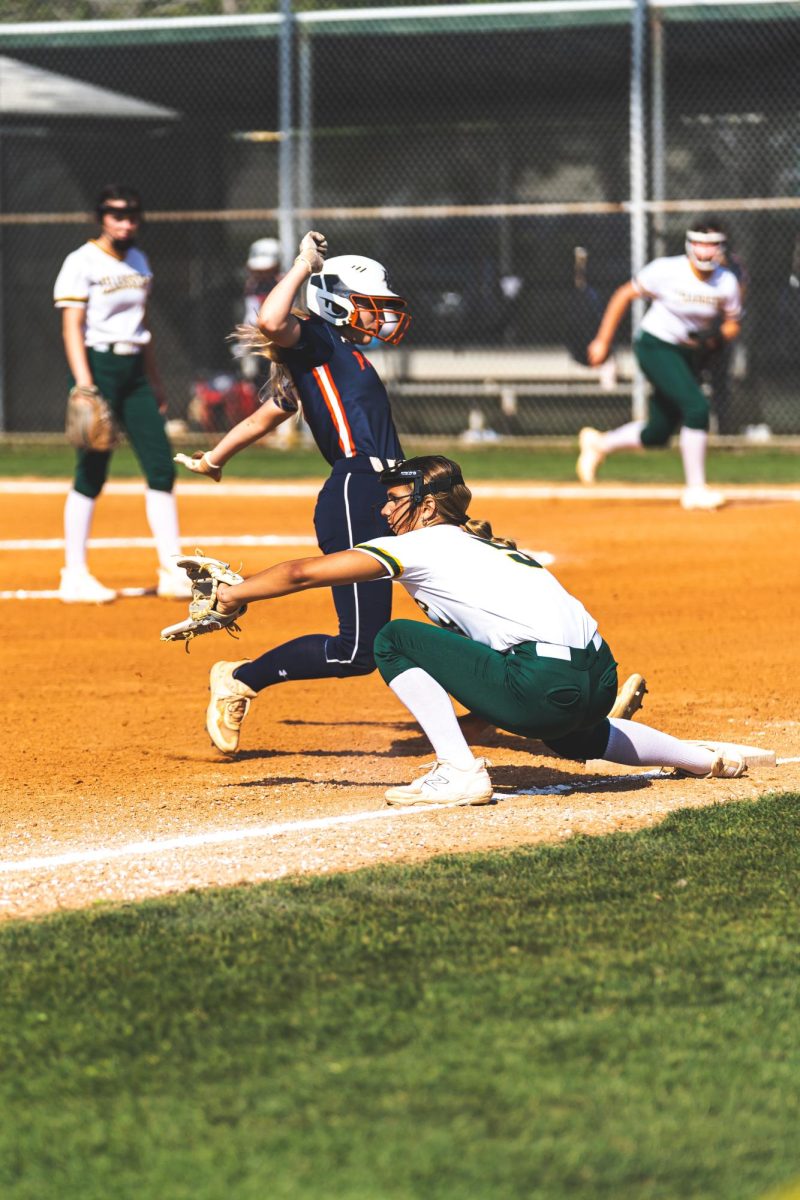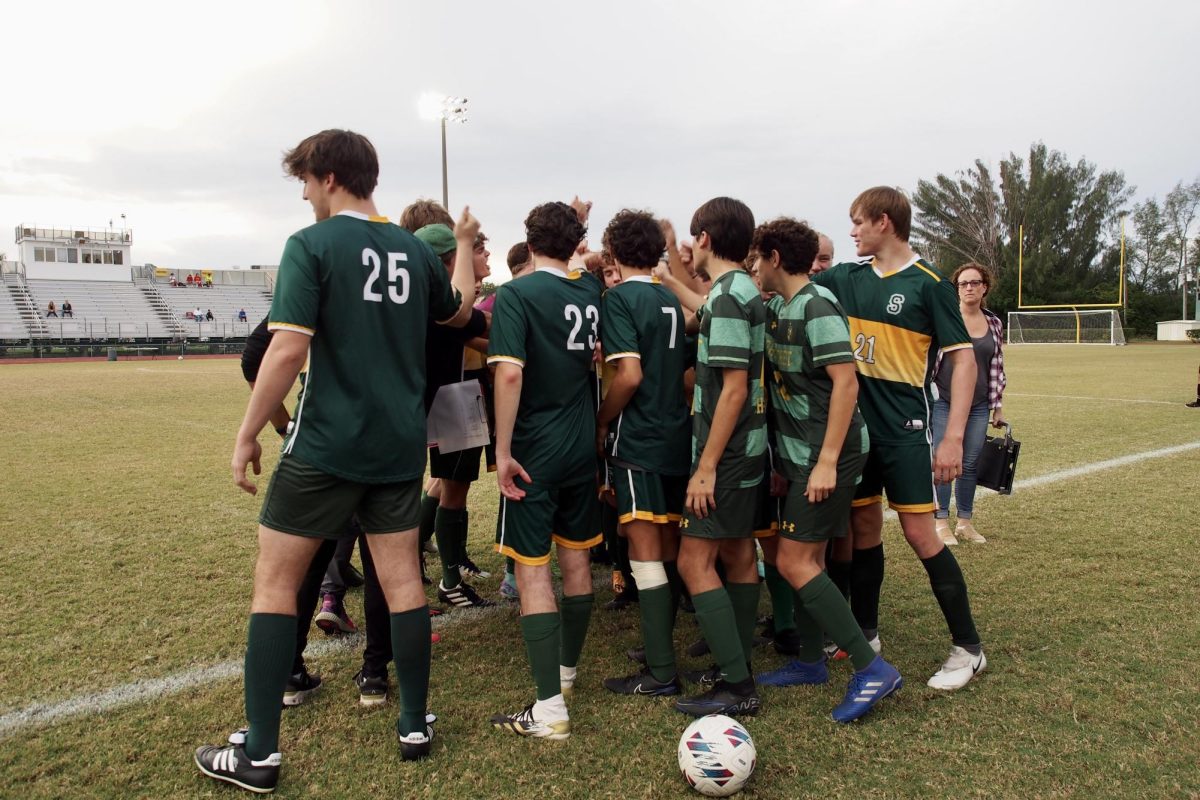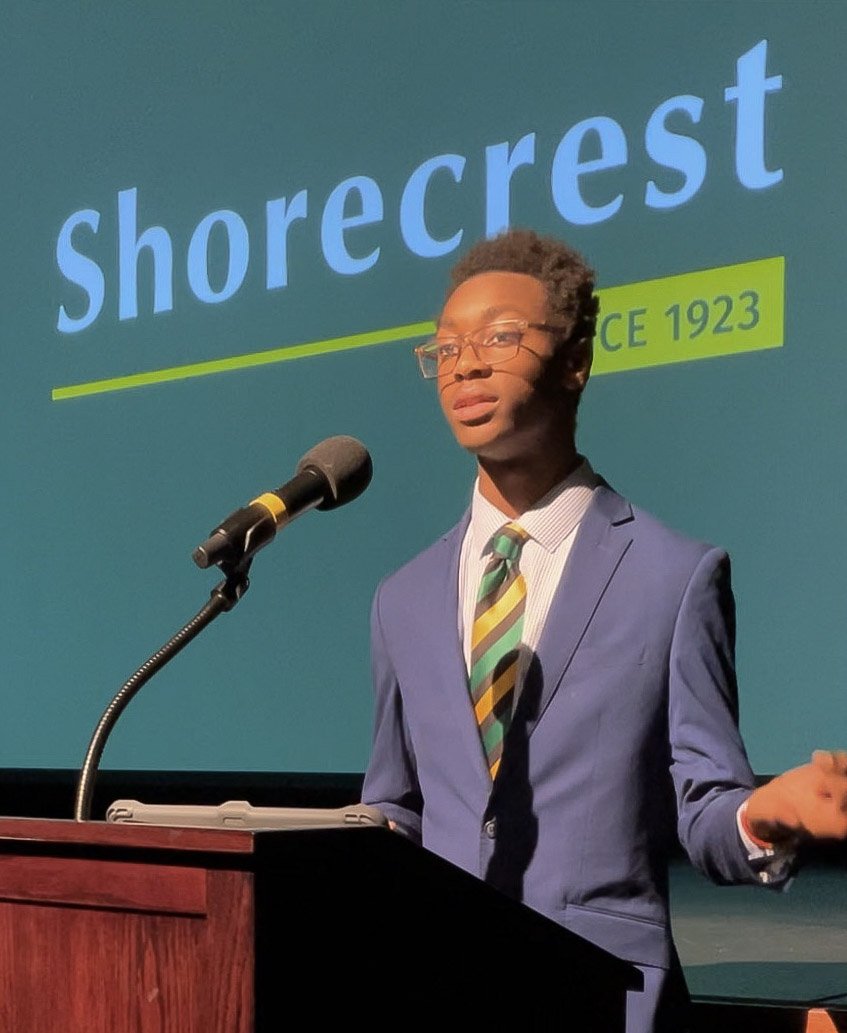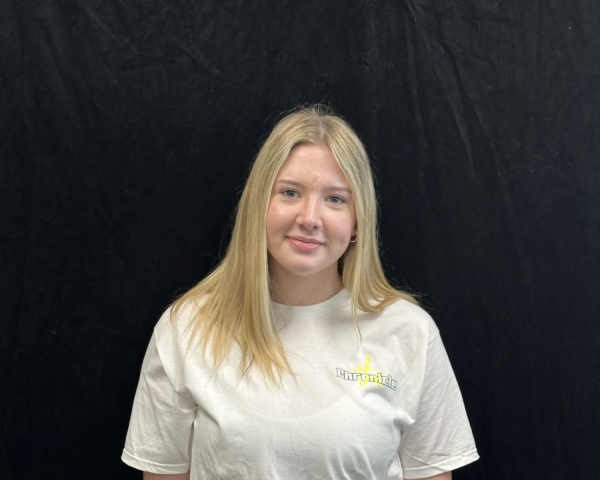The lights are dim, and a hush falls over the audience. A sophomore enters the spotlight, adjusting the microphone with a mixture of anxiousness and determination. They take a deep breath, then begin to speak, sharing a piece of themselves with everyone watching.
This moment marks one of the most profound experiences for many sophomores at Shorecrest as they take the stage in the Janet Root Theatre for their annual “This I Believe” speech, a tradition in which students share their personal reflections on their beliefs and life experiences.
The idea behind the speeches traces back to a radio program on NPR, where broadcaster Edward R. Murrow invited people across the country to write about what they believed and why. The original project became the inspiration for Shorecrest’s own “This I Believe” tradition, where students continue the legacy by speaking their truths each year.
This year’s speeches generated a noticeable shift in tone compared to previous ones. While the tradition remains a chance for students to explore and share their values, according to some, the latest speakers demonstrated a deeper sensitivity that resonated with the audience.
US English Department Chair and English Teacher Jake Seymour noted the emotional depth and authenticity the sophomores brought to their presentations, likely because he encouraged students to reflect on what truly moved them. “I started with a question that I haven’t used in a very long time, which is, ‘What makes you mad?’ I always start with, ‘What do you care about?’ But never, ‘What makes you mad?’ or ‘What fills you with passion, fills you with emotion?’”
This simple change seemed to open up students in ways they hadn’t before. “There were quite a few kids who made themselves vulnerable, talking about challenges that they overcame, and that’s a very brave thing to do,” said Seymour. “It’s brave to speak in front of people anyway, but to reveal a more sensitive side of yourself—to reveal how you can be hurt—it makes us feel vulnerable. And for a kid to do that in front of everyone, we all respect it.”
Sophomore Will Farley spoke about his 2024 service trip to Pine Ridge, South Dakota, one of the poorest areas in the United States, and the importance of acknowledging Native American history. There, Farley witnessed firsthand the struggles the Lakota people faced, experiencing the harsh realities of their daily lives. “This year, people went into more serious subjects and more personal topics than I would’ve expected,” Farley said. “People genuinely cared about what they had to say. A lot of people saw it as more than just a school assignment, but as a way to say something that they maybe couldn’t have said otherwise.”
For sophomore Bobbie Struss, this year’s speeches not only displayed the transparency and effort of the sophomore class, but also served as inspiration for freshmen who attended. “There were a lot of freshmen that came to see our speeches, and I think they can learn a lot from our grade and what topic they will want to talk about,” she said.
Among those who took the stage, sophomore Carter McCleish shared a truth that was both personally and universally felt: that love, though sometimes unspoken, is always present. “It was hard. I was worried that I would get judged a lot, but it ended up working out really well,” he said. His “I Believe” statement—“There are people who love you but just can’t show it”—was more than words, acting as a reflection of his own relationship with his father. For many teenage boys, expressing emotions openly can be especially difficult, but McCleish’s vulnerability challenged this norm. “To share a personal story like mine… I think everyone should be open [to it]. Because everyone is a person, and we’re all just here to support each other.”
The audience sat silently, absorbing his words. And then, applause. Not just for McCleish, but for every student who stood at the podium and shared something real.


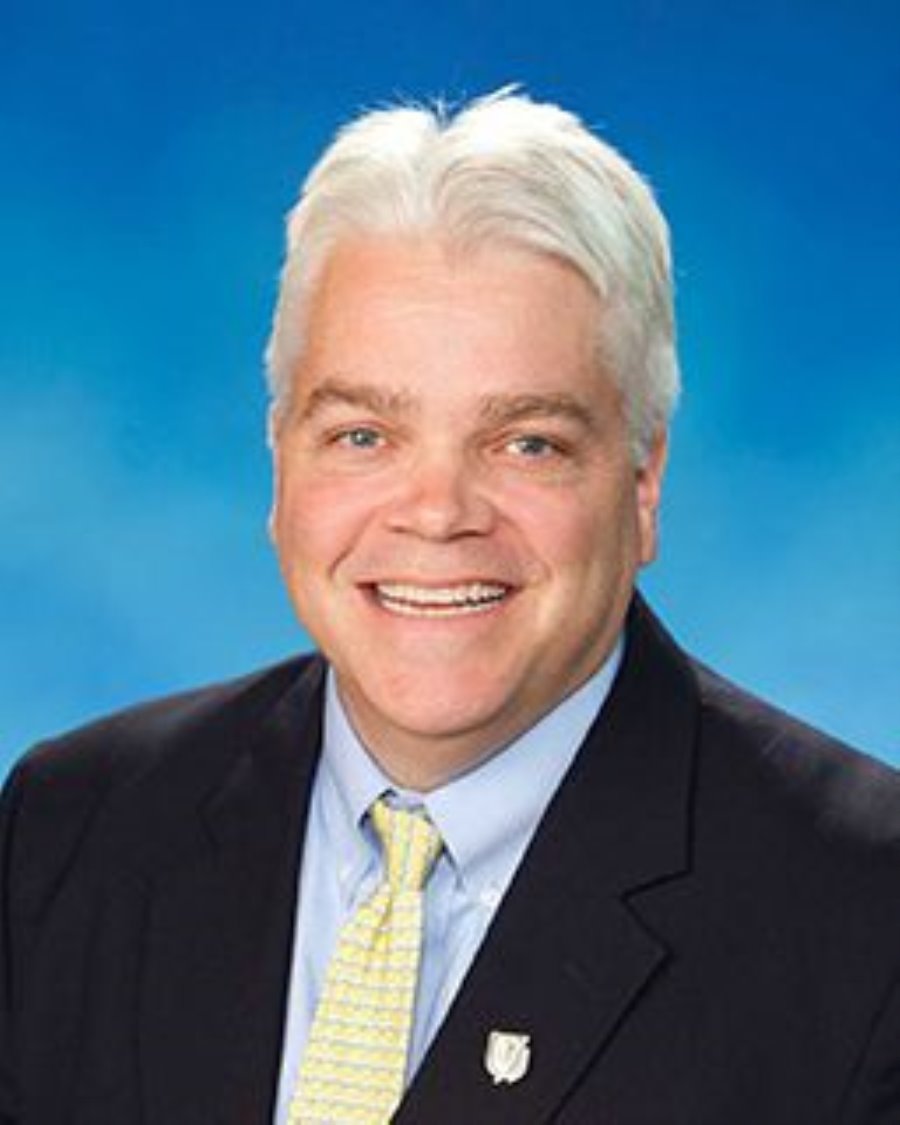
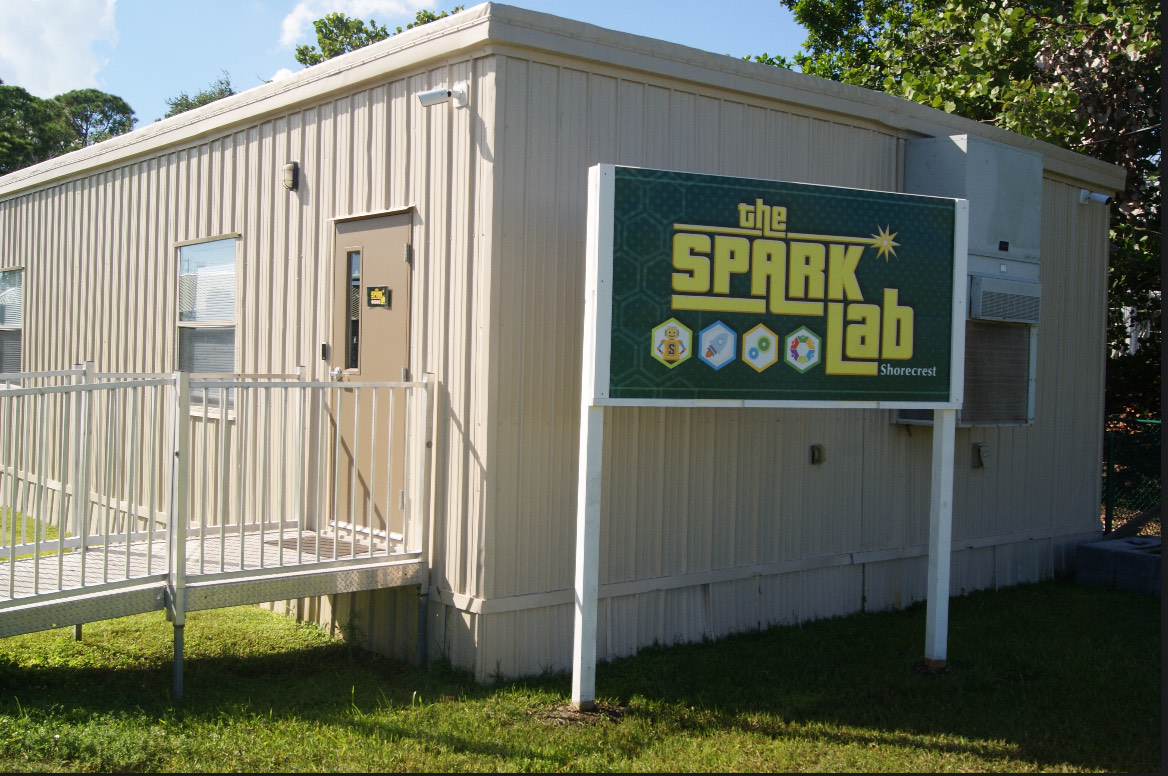


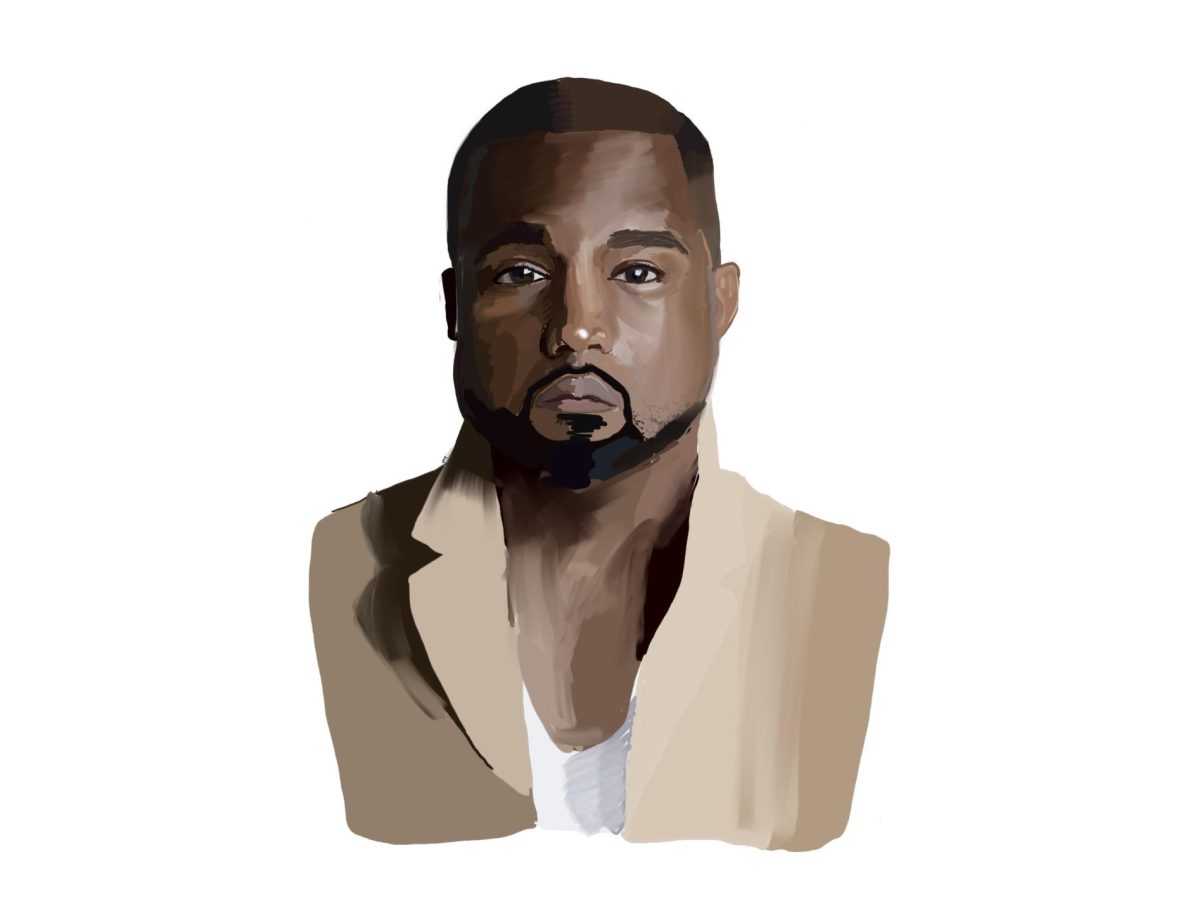





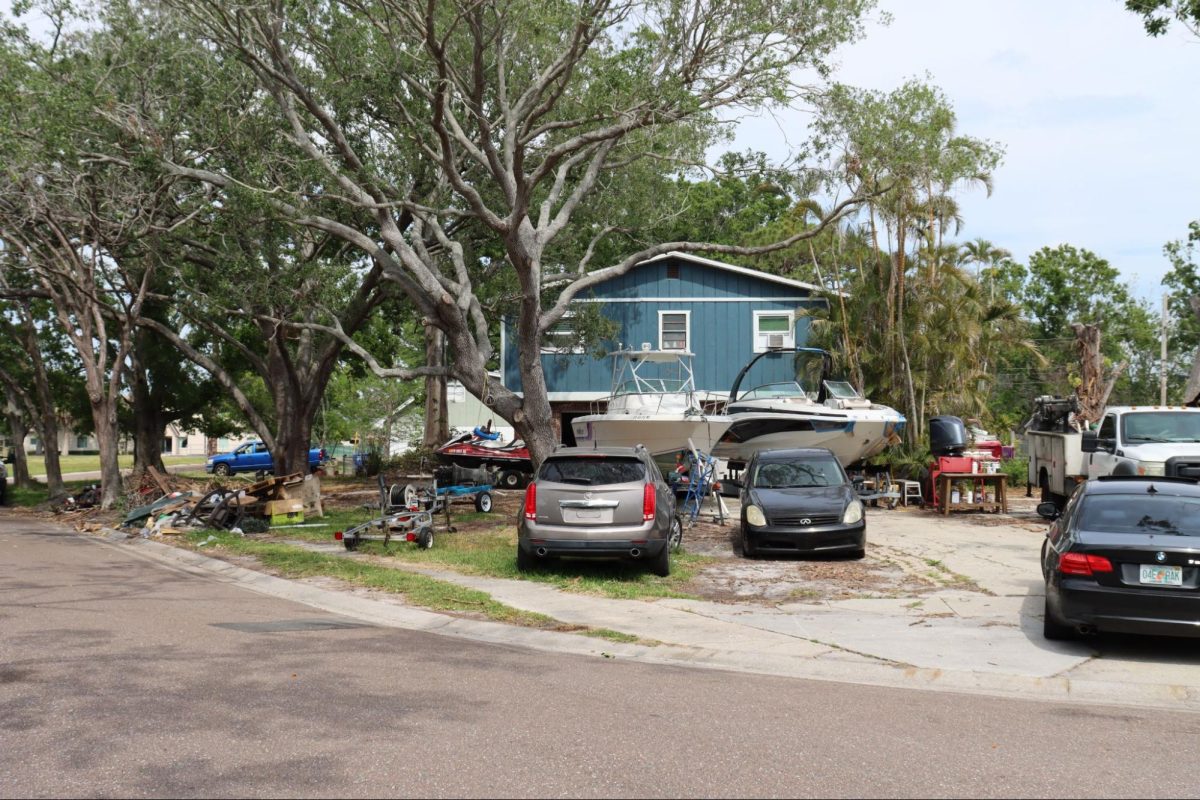

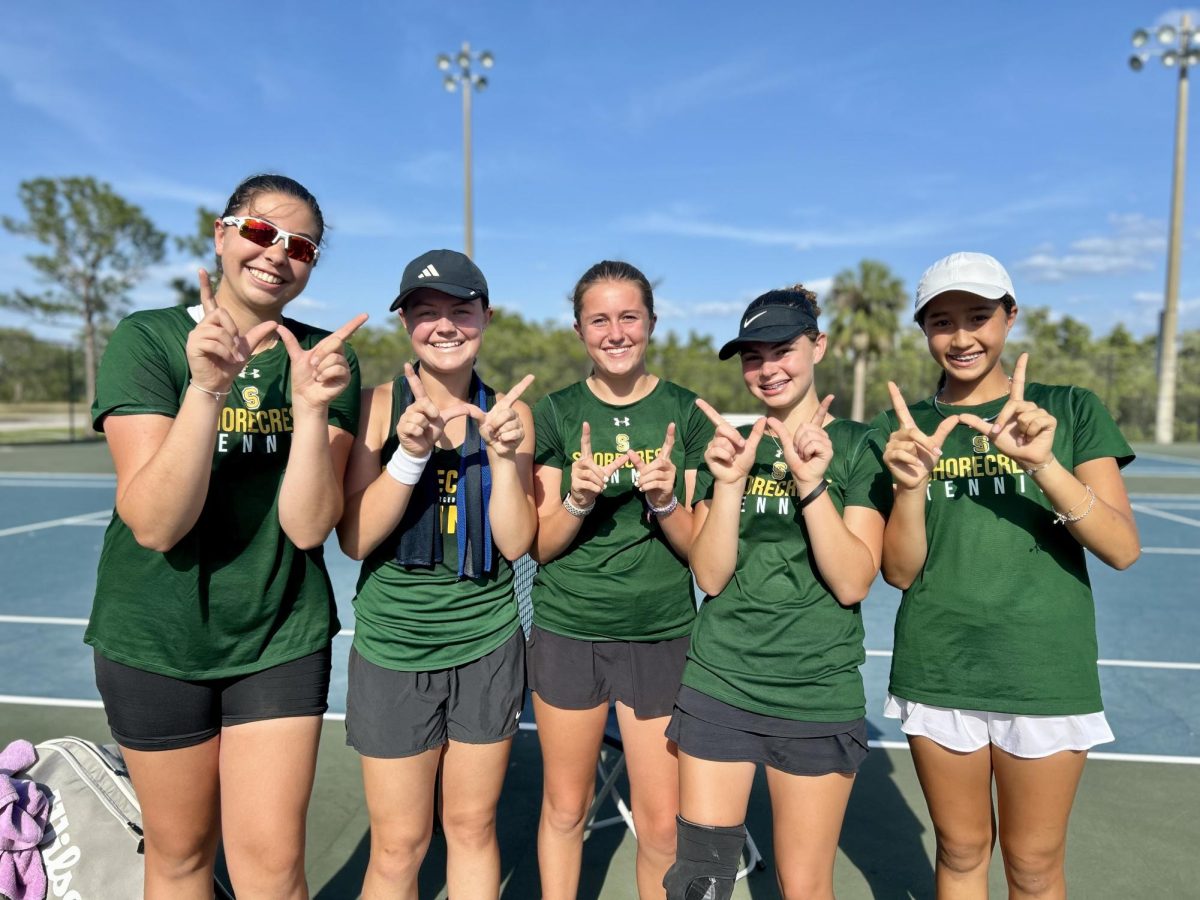


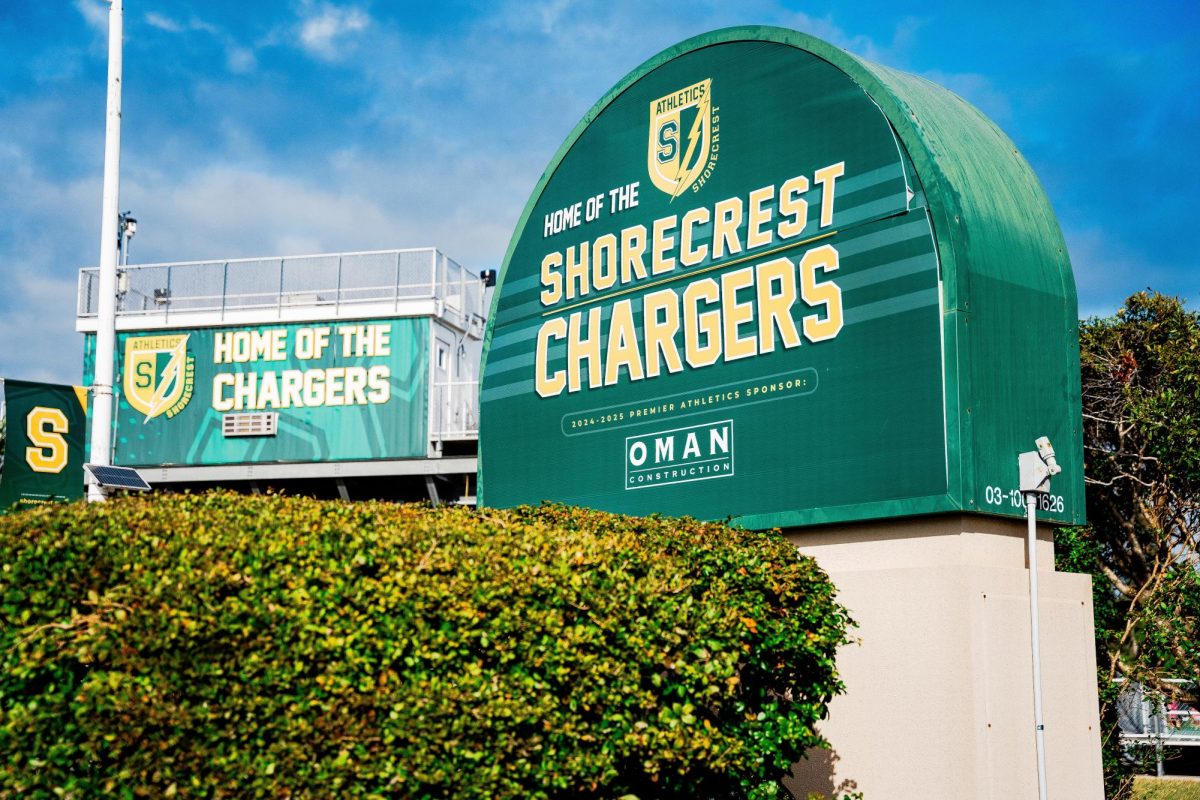





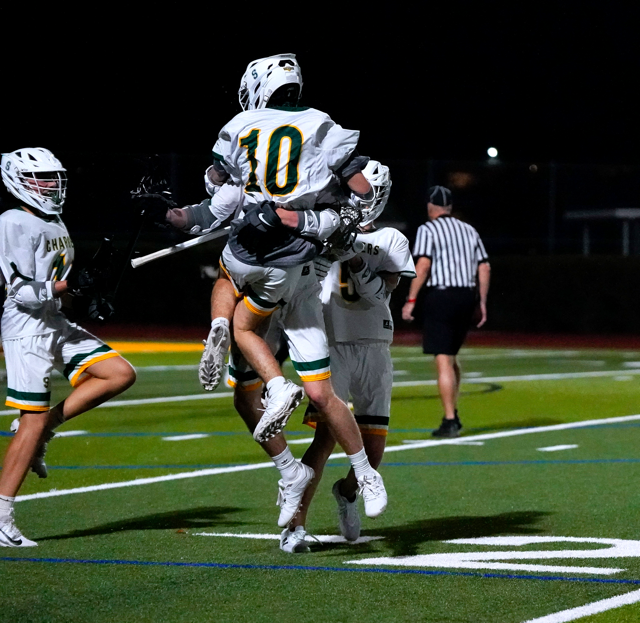

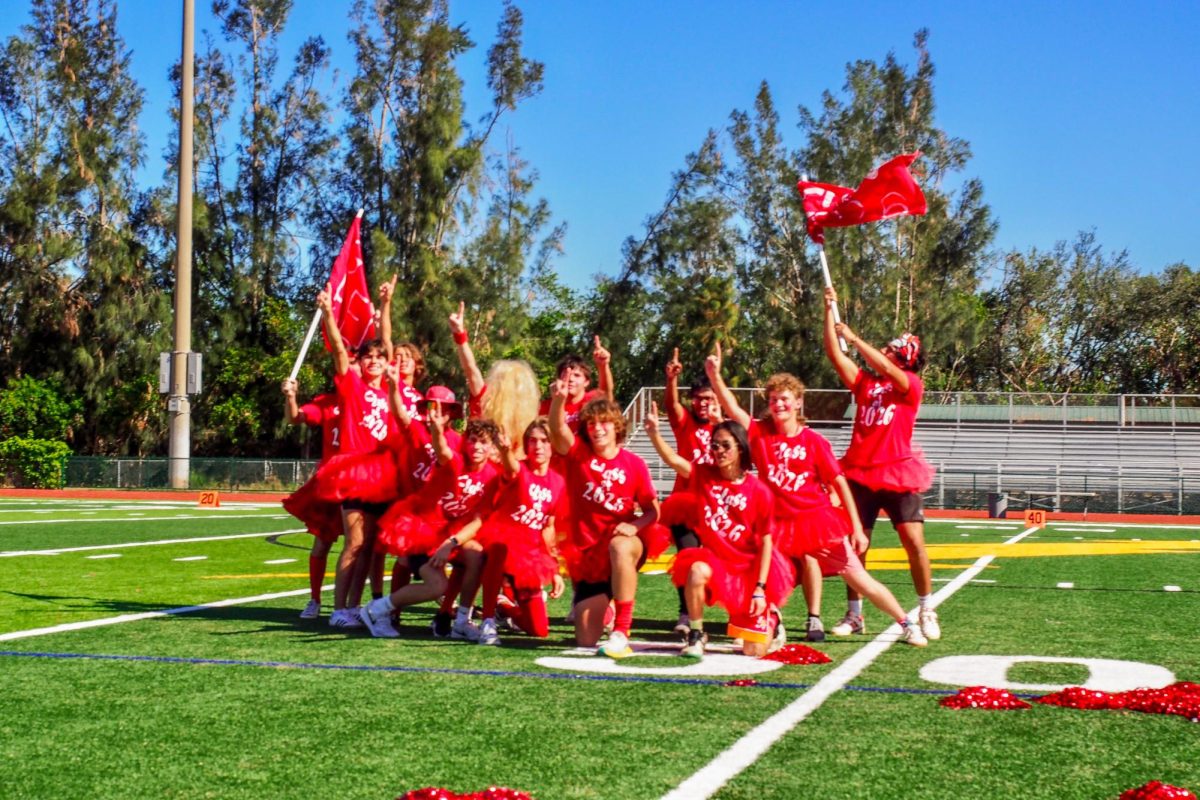
![Thespians pose on a staircase at the District IV Thespian Festival. [Front to back] Luca Baker, Maddison Cirino, Tanyiah Ellison, Alex Lewis, Summer Farkas, Jill Marcus, Ella Mathews, Sanjay Sinha, Isabella Jank, Sofia Lee, Boston Littlepage-Santana, Sally Keane, Tyler Biggar, Tanner Johnson, Jasper Hallock-Wishner, Remy de Paris, Alex Jank, Kaelie Dieter, and Daniel Cooper. Photo by Michael McCarthy.](https://spschronicle.org/wp-content/uploads/2024/12/image1-900x1200.jpg)
